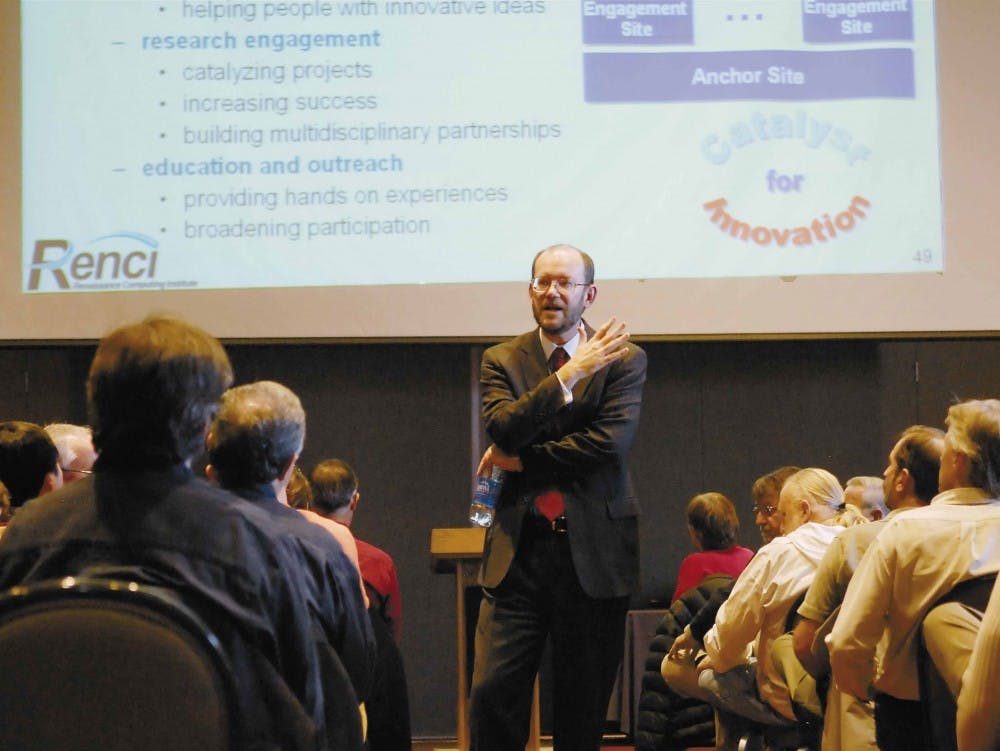by Abigail Ramirez
Daily Lobo
Students are often more technologically savvy than the people they are learning from, said Daniel Reed, director of the Renaissance Computing Institute at the University of North Carolina.
"What I found talking to students at Carolina is they are much more in tune with technology futures than are often the professors and the staff and the leaders of the institution, because they see those trends early on," Reed said. "That's the place where you actually find what's going to take off."
Reed spoke about the future of information technology at the SUB on Monday. The event was sponsored by the UNM Chief Information Officer's office.
Get content from The Daily Lobo delivered to your inbox
He said information technology has an effect on society in many ways.
Web sites like FaceBook.com and MySpace.com affect the way students interact socially, the way they receive and exchange their information and the way they get jobs, he said.
The way people use information technology has changed faster in the lifetime of most college students than ever before, he said.
Because technological advances are going to accelerate, it's important to think about how access to that technology will shape its future uses, he said.
Nancy Davis, Department of Biology system administrator, attended the presentation and said it is important for universities to keep up with technology and make sure no students are left behind the times.
"That's what the University is all about - is interacting with students and keeping up with students and keeping students up with technology, because students are oftentimes above the level of a lot of the University as far as their understanding of technology," she said. "You have to keep up with students, but also there are students that you have to bring up to that level."
Diane Solomon, financial analyst from the School of Medicine, said the presentation helped the audience broaden its idea of what role computers will play
in society.
She attended to keep herself up to date on information technology in the university setting, she said.
"It was interesting to understand how computing is going to affect lives in general but also from the perspective of the University and what it means to a university as to its interaction with the students," she said.
Universities need to be constantly aware of changing technology and be prepared to adapt to it, Reed said.
"There's a lot more ahead in that sense," he said. "I think in the next 10 years, you won't recognize what has happened."
The average
student has:
Played 10,000 hours of video games.
Sent and received 250,000 e-mail messages.
Spent 10,000 hours on a cell phone.
Watched 20,000 hours of TV.
Seen 500,000 commercials.
Spent less than 5,000 hours reading books.
Source: Daniel Reed, director of the Renaissance Computing Institute at the University of North Carolina






